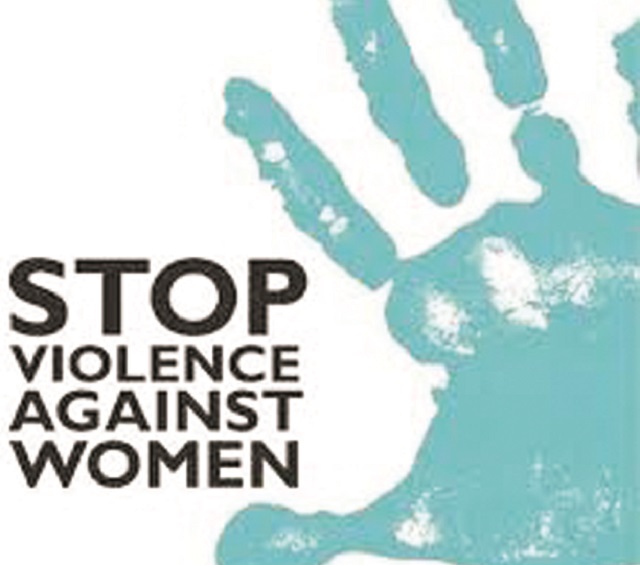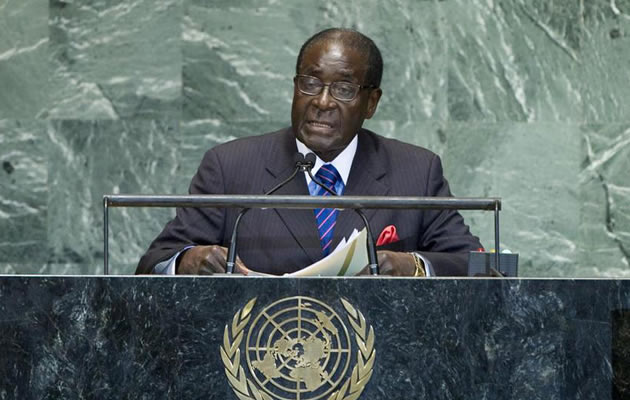Men as the game changers: How male involvement changed the gender landscape in Zimbabwe

Jephiter Tsamwi
“It’s difficult but as a woman, usually there is neither an option nor a way out. When he comes home drunk, almost every day, you know he will beat you even when kids are watching. You ask yourself what wrong you committed to deserve such treatment from a man who is the father of your kids but you won’t get an answer. I tried so many avenues to make him a better man, but nothing materialised. It was only after fellow men talked to my husband that he turned from a monster he used to be to a real man.”
Mrs Vongai Musoro (24) narrates her painful ordeal, an abusive marriage that she had endured since the day she joined what would become a brutal union, but marriage in the eyes of her neighbours. Like many girls in some communities in Zimbabwe, Mrs Musoro is a survivor of child marriage. At the age of 15 she was married to an older man, and forced to drop out of school in Form 3.
Zimbabwe’s new Constitution stipulates that “no person may be compelled to enter marriage against their will”, and calls on the State to ensure that no girls are pledged into marriage, but still the Multiple Indication Cluster Survey (MICS) 2014 indicate that 31 percent of girls in Zimbabwe are married before 18 years.
There are many programmes that have been implemented in Zimbabwe to address gender-based violence (GBV) and taking a multi-sectoral approach in which all and sundry joined hands in fighting the scourge. But there was only one missing link-involvement of men as agents of change themselves.
In September 2014, UN Women launched the HeForShe Campaign, which is a solidarity campaign for the advancement of women through engaging men and boys as agents of change by encouraging them to take action against inequalities faced by women and girls. Grounded in the idea that gender equality is an issue that affects all people — socially, economically and politically — the campaign seeks to actively involve men and boys in a movement that was originally conceived as “a struggle for women by women.”
Locally, this campaign is called the Men to Men Campaign Against Gender Based Violence and is being spearheaded by a local NGO, the Students and Youth Working on Reproductive Health Action Team (Saywhat) in partnership with the Ministry of Women Affairs, Gender and Community Development and with support from UN Women. Under this campaign, over one million people have been reached out in Zimbabwe using dynamic young men driven initiatives at community level, social media, mass media and other structural initiatives which formed the programme pillars with 75 percent of people reached being men.
What stands out as unique in this programme is not only how it brought on board men, the would-be perpetrators to champion for the cause of their female counterparts, but also how it harvested and invested in the community systems and cultures as entry points to stimulate dialogue on gender and women’s rights issues using the same social systems and values that used to reinforce women’s position as perennial unequal beings to men.
Using trained young men as anti-GBV ambassadors, the young men would conduct open dialogues with men in the relevant and convenient spaces where men usually discuss family and life matters in general. Saywhat executive director, Ms Vimbai Mlambo noted that the programme represents “a strategic paradigm shift in the war against a cancer that had crippled humanity in our societies with women being the major causalities”
The Men to Men Campaign became a fully integrated programme that ensured that community aspirations are met, addressing socio-economic imperatives in the target communities. Most importantly is how it provided linkages for addressing the sexual and reproductive health challenges faced by communities, including making communities understand the link between GBV and HIV and how GBV limits the potential of women and girls. Men who took part in the dialogues reported more willingness to get tested for HIV, to be faithful to their partners and or having safer sex by using protection when having sexual intercourse.
According to Mr Henry Rufinhu, the Community Development Officer for Makoni District in the Ministry of Women Affairs, Gender and Community Development, men are most likely to listen to other men on all matters, a factor which led to the Men to Men Campaign Programme’s success.
“In a rather patriarchal society, women’s voices are less regarded especially in the conservative societies where the programme was implemented and it was important to use men as agents of change,” said Mr Rufinhu.
But the road to the now achieved results was not that easy. It was always going to be difficult to change the views and perceptions of men and gender issues, most of them passed from generation to generation to the point where some negative cultural practices like child marriages and beating a wife had been normalised.
The ambassadors not only involved the young men from the communities, but also the traditional leaders became the chief ambassadors and they also changed some of their practices which used to supress women.
Chief Pomo said: “Many times women would come to report cases of physical and sexual abuse from their husbands, but our norm was that for a person to bring his or her issue to the chief, a token was first supposed to be paid. As we discussed more of these issues we then asked ourselves why do we expect this vulnerable woman to pay a fee to the chief. She is being abused, sometimes denied any form financial assistance by the husband, and we realised we are punishing the women more and more instead of helping her. And those practices have since stopped.”
The traditional leaders have not only changed their way of operation in that regard but have also created stronger synergies and working relations with the police. Chief Pomo noted that they are now taking it as a duty to help women who are abused to report the cases of abuse to the police.
Reports from the anti-GBV ambassadors show that over 150 women had been assisted to get legal assistance from the police in the period from January 2014 to October 2016 in the three programme’s target districts, Beitbridge, Rusape and Bindura.
The District Development Officer for Beitbridge in the Ministry of Women Affairs, Gender and Community Development, Mr Vusumuzi Siduli noted that the involvement of men in the drive to eliminate all forms of violence against women and girls has been well received in the area and has traceable results that have mostly benefited vulnerable women and girls.
One of the anti-GBV ambassadors, Mr Sangster Kudakwashe said one of their key focuses is to address challenges of young girls engaging in sex work.
“As men we are quick to judge the girl child that she is loose, immoral and all kinds of words, but no other men is there to question why fathers are neglecting their families, resulting in some of these girls going opting for sex work as a source of livelihood,” said Mr Kudakwashe.
An activist, Mr Daniel Ngilishi said that they are also engaging the men both residents of Beitbridge and those in transit, encouraging them to desist from exploiting these young sex workers with their key message being “How would you feel if it was your daughter”
Beitbridge is border town that lies in a province (Matabeleland South) with the highest HIV prevalence at 21 percent which is close to two times the national average which stands at 14 percent. Gender based violence is also very rife in the province and the ambassadors have impacted the lives of many women, men and families.
Mrs Piwayi Murenjekwa (32) noted that her husband is now more responsible to his family from the day he took part in the Men to Men talks that were being spearheaded by the ambassadors. She noted that for the six years they have been married, her husband used to neglect her and when she tried to talk to him, he would beat her up.
“I had given up on talking to him. He would not listen and would violently respond by beating me up or not coming home for more than a week if I challenge him. I was shocked the other day when he came home, telling me how he met these young men (ambassadors) and the discussions they had. I am happy he is now a changed man,” said Mrs Murenjekwa.
Another young woman, Mrs Chiedza Mbangure (26) highlighted that her husband now treats her with respect and love and family unity has sparked progress and peace in her marriage.
The ambassadors did not only engage men in encouraging them to stop abusing their wives but also conducted dialogues that provided linkages with economic development of the area and the girl child support. Men in Beitbridge and Bindura reported that they now support and understand the value and need for the education of the girl child.
A 19 year old girl in Bindura is now doing a poultry project with support from her guardians, as part of her efforts to raise school fees for her to start college in 2017.
“I really want to thank this programme. Now I will pursue my dream of becoming an electric engineer. My parents, did not to approve of me going to college. Instead they said I should get married and be a family woman. But after the ambassadors talked to them, it’s a different story,” she said
Mr Sendisa Ndlovu, the Saywhat programmes manager highlighted that the strategy of involving men as the change agents transformed systems and practices and changed the mind-sets of men, their beliefs and perceptions noting that with resources permitting, the programme will be scaled up to cover directly, more districts and provinces in the country and beyond. With male involvement, Mrs Musoro is happy again and she now enjoys the fruits of her marriage, living in peace and love with her husband and kids. It is the first step to build stronger communities and bring sustainable solutions to community problems.
Jephiter Tsamwi is a writer based in Harare. He can be contacted on [email protected]











Comments